News
-
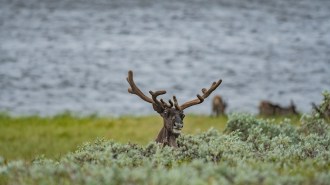 Life
LifeCaribou gut parasites indirectly create a greener tundra
Caribou merely sickened by parasites eat less vegetation, allowing plants to flourish.
By Jake Buehler -
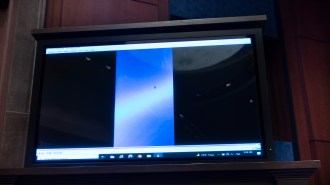 Science & Society
Science & SocietyWhy some scientists want serious research into UFOs
Science grapples with unknown phenomena all the time. Investigating UAP and whether they're related to aliens shouldn't be different, researchers say.
By Liz Kruesi -
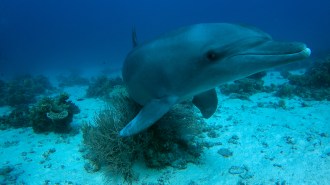 Animals
AnimalsThese dolphins may turn to corals for skin care
For Indo-Pacific bottlenosed dolphins, rubbing against corals and sea sponges that contain antibacterial compounds could help keep skin healthy.
-
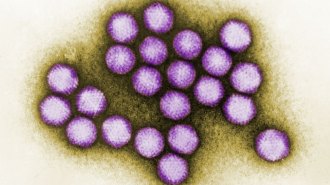 Health & Medicine
Health & MedicineUnexplained hepatitis cases in kids offer more questions than answers
There is a lot that is unclear about the hepatitis that’s impacting several hundred children worldwide, but parents shouldn’t panic.
-
 Physics
PhysicsHere’s why pipe organs seem to violate a rule of sound
Why reedless wind instruments’ fundamental tones are lower than expected is an 160-year-old mystery. Physicists have now solved it.
By Bas den Hond -
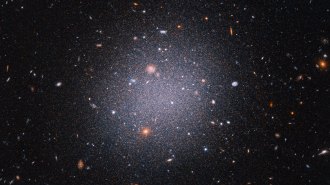 Physics
PhysicsA galactic smashup might explain galaxies without dark matter
Scientists are debating whether a trail of galaxies reveals the origins of two weird dark matter–free galaxies.
-
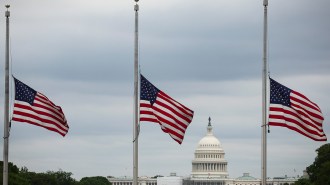 Science & Society
Science & SocietyCOVID-19 has killed a million Americans. Our minds can’t comprehend that number
We intuitively compare large, approximate quantities but cannot grasp such a big, abstract number as a million U.S. COVID-19 deaths.
By Sujata Gupta -
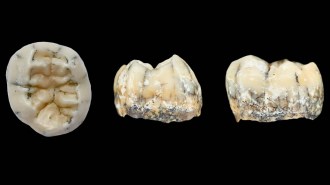 Anthropology
AnthropologyA Denisovan girl’s fossil tooth may have been unearthed in Laos
A molar adds to suspicions that mysterious hominids called Denisovans inhabited Southeast Asia's tropical forests.
By Bruce Bower -
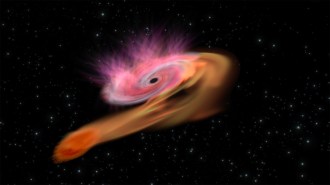 Particle Physics
Particle PhysicsHigh-energy neutrinos may come from black holes ripping apart stars
Where extremely energetic neutrinos originate from is a mystery. A new study supports the idea that “tidal disruption events” are one source.
-
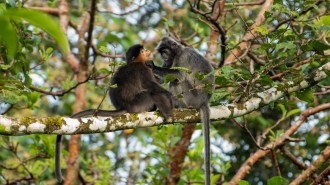 Animals
AnimalsA ‘mystery monkey’ in Borneo may be a rare hybrid. That has scientists worried
Severe habitat fragmentation caused by expanding palm oil plantations may have driven two primate species to mate that wouldn’t have otherwise.
-
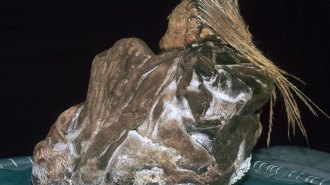 Archaeology
ArchaeologyA special brew may have calmed Inca children headed for sacrifice
The mummified remains contained a substance that may reduce anxiety and is found in ayahuasca, a psychedelic ceremonial liquid still drunk today.
By Bruce Bower -
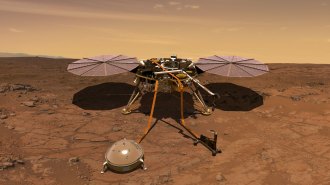 Planetary Science
Planetary ScienceNASA’s InSight lander has recorded the largest Marsquake yet
The magnitude 5 temblor, detected May 4, will help scientists learn more about the Red Planet’s interior.